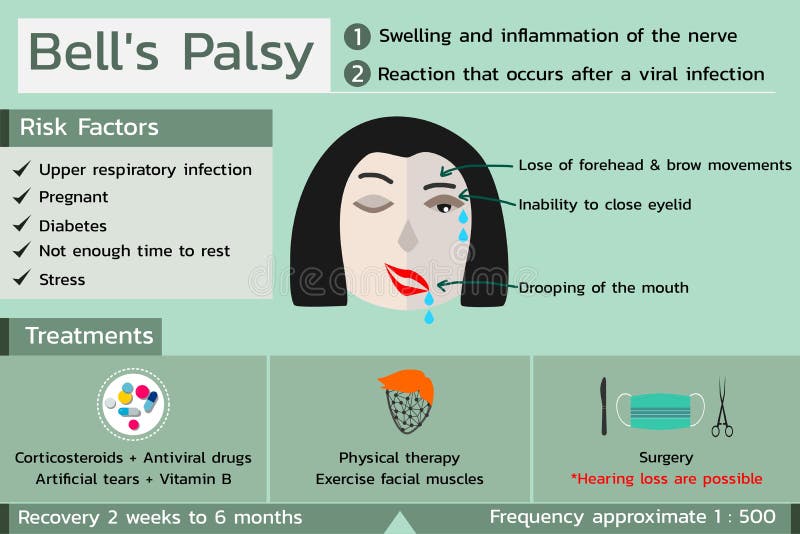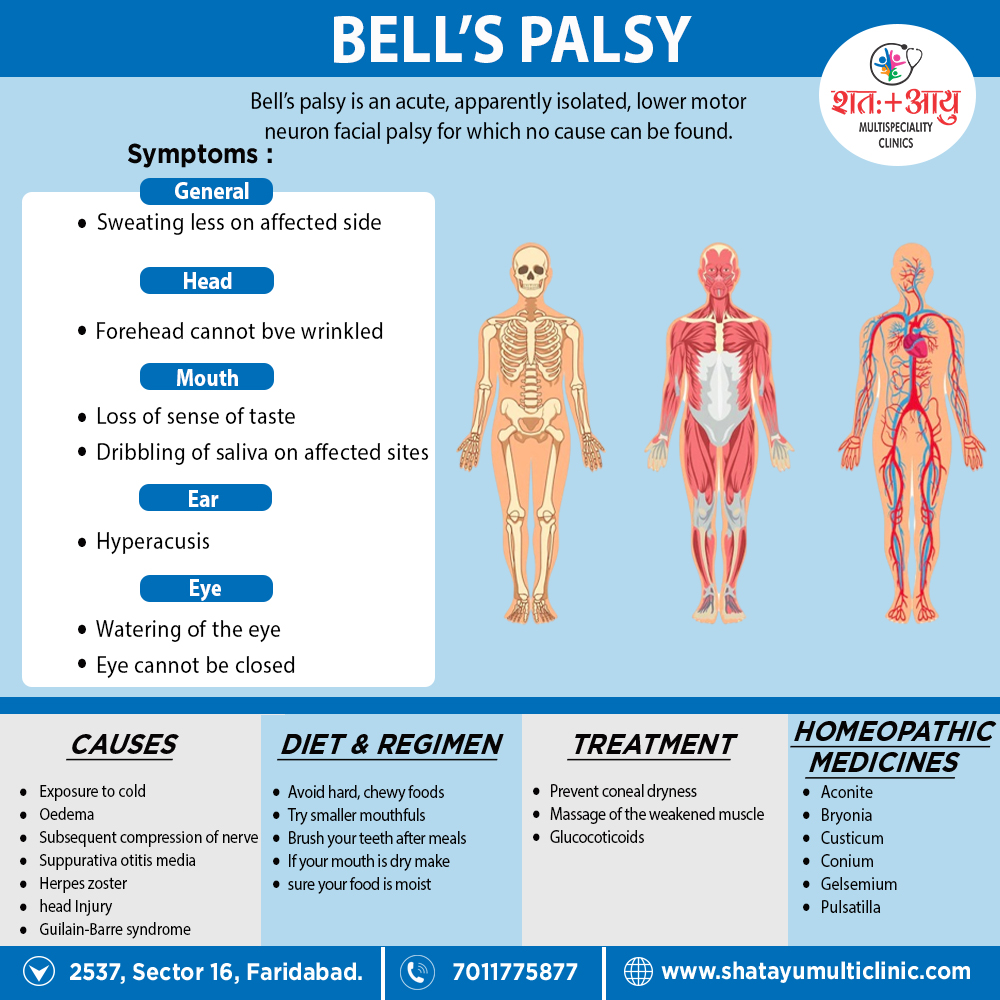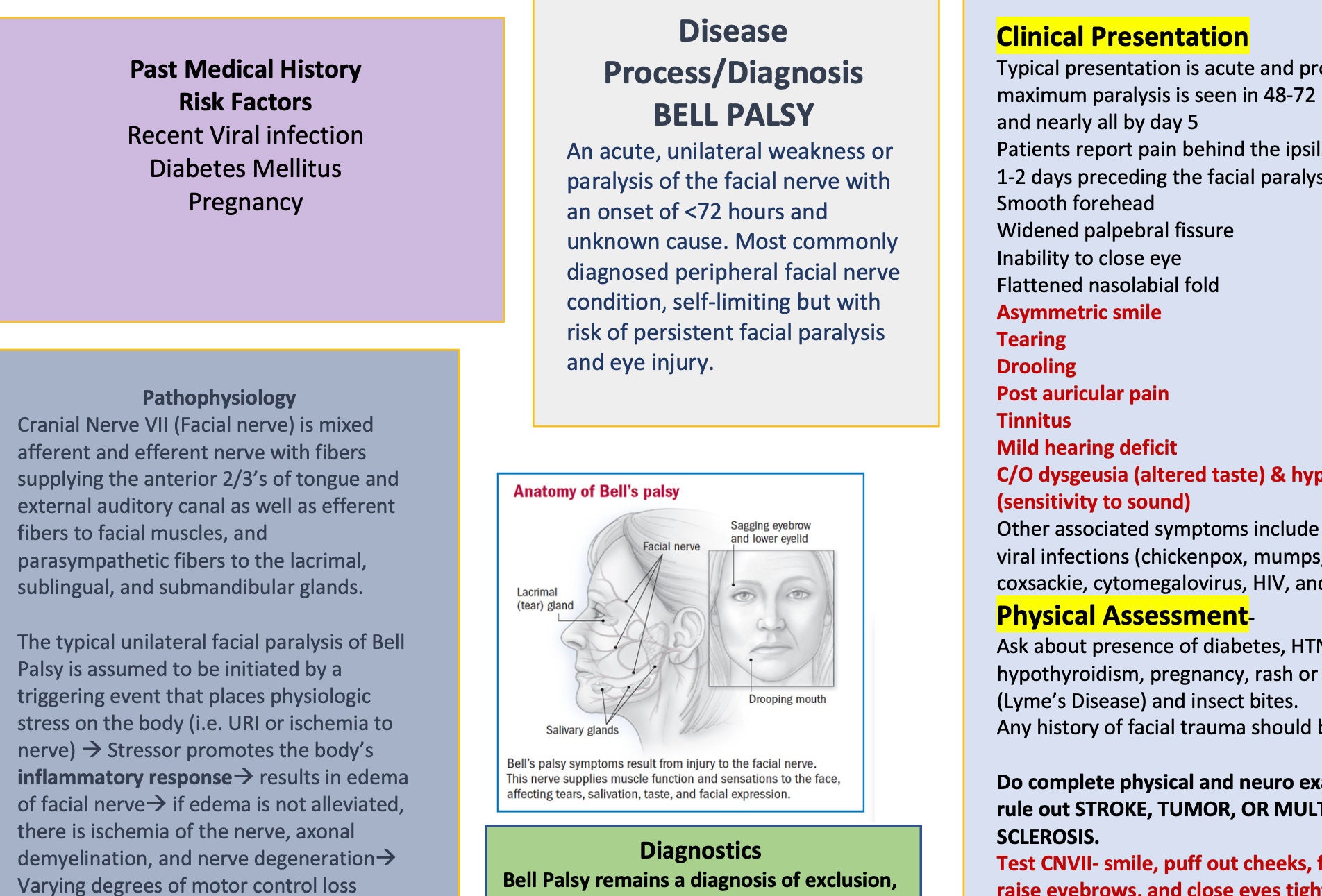Bell's Palsy Brochure
Bell's Palsy Brochure - The first session starts with a massage exercise that lasts 10 to 15 minutes. This publication provides an overview of bell's palsy, including common symptoms, diagnosis, and available therapies. Bell's palsy is a weakness or paralysis of a facial nerve. The facial nerve becomes inflamed, the nerve signal gets blocked and the facial nerve is then unable to send the signal to move. Facial neuromuscular retraining has been shown to be an effective therapy for recovery from facial paralysis. The primary purpose of this guideline is to improve the accuracy of diagnosis for bell’s palsy, to improve the quality of care and outcomes for patients with bell’s palsy, and to decrease. It is the most common. Bell's palsy is a condition in which there is paralysis of the muscles of the face, typically on one side. Help people diagnosed with bell’s palsy recover control of their facial muscles and overall symmetry. The facial or 7th cranial nerve passes. The 2 facial nerves control movement of the muscles of expression on each side of your face. The paralysis can appear as sagging, frozen expressions, frowns,. This publication provides an overview of bell's palsy, including common symptoms, diagnosis, and available therapies. Bell’s palsy is a condition that involves temporary weakness or paralysis of the facial muscles due to inflammation, damage or trauma to the facial nerve. Bell's palsy is a weakness or paralysis of a facial nerve. Bp accounts for approximately half. Facial neuromuscular retraining has been shown to be an effective therapy for recovery from facial paralysis. Bell's palsy/facial palsy is a condition in which there is paralysis of the muscles of the face, typically on one side. Bell’s palsy happens when there is inflammation that causes damage to a nerve that feeds one side of the face. Bell's palsy is a condition that causes the facial nerve not to work resulting in paralysis and distortions of the face. The 2 facial nerves control movement of the muscles of expression on each side of your face. Bell's palsy/facial palsy is a condition in which there is paralysis of the muscles of the face, typically on one side. Help people diagnosed with bell’s palsy recover control of their facial muscles and overall symmetry. Bell’s palsy is characterized by the spontaneous. For an informative website, visit www.bellspalsy.ws. Bp accounts for approximately half. Bell's palsy is a condition in which there is paralysis of the muscles of the face, typically on one side. Bell palsy is acute facial paralysis or weakness caused by peripheral cranial nerve vii (facial) dysfunction of unknown etiology. The facial or 7th cranial nerve passes. Bell’s palsy is the name for a specific type of facial paralysis. Bell’s palsy happens when there is inflammation that causes damage to a nerve that feeds one side of the face. Bell’s palsy is a condition that involves temporary weakness or paralysis of the facial muscles due to inflammation, damage or trauma to the facial nerve. The first session. The facial nerve becomes inflamed, the nerve signal gets blocked and the facial nerve is then unable to send the signal to move. For an informative website, visit www.bellspalsy.ws. Diagnosis and management of bell palsy b ell palsy (bp) is an idiopathic, unilateral facial nerve palsy of acute onset that leads to facial muscle weakness. The 2 facial nerves control. The paralysis can appear as sagging, frozen expressions, frowns,. It is usually temporary, with most people making a. Help people diagnosed with bell’s palsy recover control of their facial muscles and overall symmetry. Bell's palsy is a condition in which there is paralysis of the muscles of the face, typically on one side. This publication provides an overview of bell's. Bell's palsy is a condition in which there is paralysis of the muscles of the face, typically on one side. Bp accounts for approximately half. Facial neuromuscular retraining has been shown to be an effective therapy for recovery from facial paralysis. Bell’s palsy is characterized by the spontaneous acute (72 hours or fewer) onset of a unilateral peripheral facial nerve. The facial nerve becomes inflamed, the nerve signal gets blocked and the facial nerve is then unable to send the signal to move. Affected patients develop unilateral facial paralysis over one to three days. Bell’s palsy happens when there is inflammation that causes damage to a nerve that feeds one side of the face. Bell's palsy/facial palsy is a condition. Bell's palsy is a condition in which there is paralysis of the muscles of the face, typically on one side. Bell’s palsy is a condition that involves temporary weakness or paralysis of the facial muscles due to inflammation, damage or trauma to the facial nerve. Bell's palsy is a disorder of rapid onset that is associated with a temporary, and. The first session starts with a massage exercise that lasts 10 to 15 minutes. Bell’s palsy is a condition that involves temporary weakness or paralysis of the facial muscles due to inflammation, damage or trauma to the facial nerve. This publication provides an overview of bell's palsy, including common symptoms, diagnosis, and available therapies. For an informative website, visit www.bellspalsy.ws.. Help people diagnosed with bell’s palsy recover control of their facial muscles and overall symmetry. Bell's palsy/facial palsy is a condition in which there is paralysis of the muscles of the face, typically on one side. Affected patients develop unilateral facial paralysis over one to three days. Facial neuromuscular retraining has been shown to be an effective therapy for recovery. Affected patients develop unilateral facial paralysis over one to three days. Bell's palsy is a disorder of rapid onset that is associated with a temporary, and most often, unilateral facial paralysis occurring when cranial nerve vii (facial nerve) becomes swollen,. Help people diagnosed with bell’s palsy recover control of their facial muscles and overall symmetry. Bp accounts for approximately half. It is usually temporary, with most people making a. This publication provides an overview of bell's palsy, including common symptoms, diagnosis, and available therapies. Bell’s palsy happens when there is inflammation that causes damage to a nerve that feeds one side of the face. Bell's palsy is a condition that causes the facial nerve not to work resulting in paralysis and distortions of the face. Diagnosis and management of bell palsy b ell palsy (bp) is an idiopathic, unilateral facial nerve palsy of acute onset that leads to facial muscle weakness. For an informative website, visit www.bellspalsy.ws. The facial nerve becomes inflamed, the nerve signal gets blocked and the facial nerve is then unable to send the signal to move. Bell's palsy is a condition in which there is paralysis of the muscles of the face, typically on one side. It is the most common. Bell’s palsy is characterized by the spontaneous acute (72 hours or fewer) onset of a unilateral peripheral facial nerve palsy without any accompanying signs, with neither the history nor. The facial or 7th cranial nerve passes. Bell palsy is acute facial paralysis or weakness caused by peripheral cranial nerve vii (facial) dysfunction of unknown etiology.Bell's Palsy Diagnosis and Chance of Recovery
Premium Vector Bell's palsy infographic to show the cause the symptom
Bell S Palsy Infographic in Green Color Tone Stock Vector
What is Bell's Palsy? [Infographic] Knowing Neurons
Bell’s Palsy SHATAYU MULTISPECIALITY CLINIC
Clinical Practice Guideline Bell's Palsy PDF Evidence Based
Bell's Palsy PDF Neurology Neurological Disorders
Bell's Palsy Concept Map and Study Guide Etsy
Bell's Palsy Handbook Facial Nerve Palsy or Bell's Palsy facial
Bell's Palsy PDF Clinical Medicine Human Anatomy
Bell's Palsy/Facial Palsy Is A Condition In Which There Is Paralysis Of The Muscles Of The Face, Typically On One Side.
The Paralysis Can Appear As Sagging, Frozen Expressions, Frowns,.
Bell’s Palsy Is A Condition That Involves Temporary Weakness Or Paralysis Of The Facial Muscles Due To Inflammation, Damage Or Trauma To The Facial Nerve.
Bell’s Palsy Is The Name For A Specific Type Of Facial Paralysis.
Related Post:
:max_bytes(150000):strip_icc()/bells-palsy-and-stroke-3145940_V2-01-35b84cea965c4b0cbf129f769c8d51a1.png)


![What is Bell's Palsy? [Infographic] Knowing Neurons](https://knowingneurons.com/wp-content/uploads/2019/03/KNBellsPalsyInfographic-768x1920.png)





